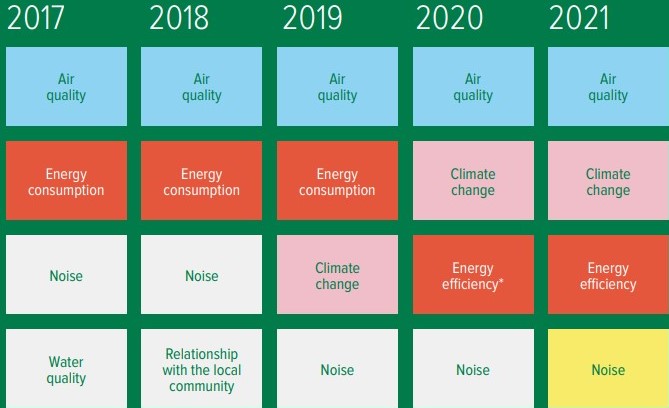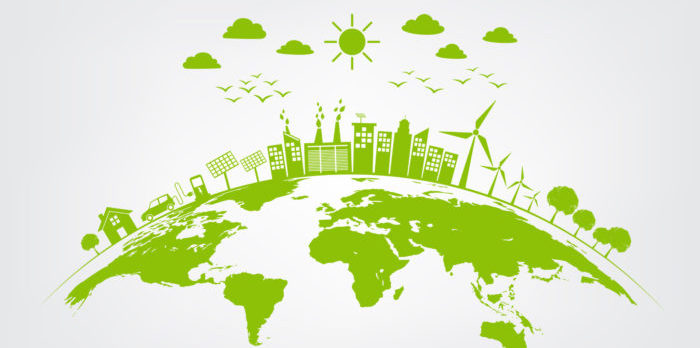ESPO announced the 2021 Annual ESPO Environmental Report, which shows several positive trends amongst key indicators.
This year’s report is based on a slightly larger sample compared to 2020, with the Top 10 priorities of surveyed ports remaining almost the same as last year.
The five top priorities are identical to the 2020 priorities, with air quality, climate change, and energy efficiency as the top three priorities.
The 2021 Report also shows that ports continue to focus on “green” priorities. In fact, air quality has been the top environmental priority since 2013 and is followed by climate change, which is the second priority for ports for the second year in a row. Energy efficiency is the third priority of ports.

Furthermore, for 2021 the report finds that ports are improving their environmental management to address their top priorities. Namely, the Environmental Management Index (ranging from 0 to 10), which provides an indication of the extent to which ports in the EcoPorts Network are engaged in environmental management, has increased for the first time in several years. In 2021, the score is 7,86, compared to 7,80 in 2020. This improvement is largely due to a growing share of ports providing environmental management programmes and training.
Close to 40% of responding ports have become certified with the Port Environmental Review System (PERS). This is a significant increase compared to 2020, when 33% of ports had a PERS certificate
the report says.
What is more, the findings of the report demonstrate that ports have improved their performance in key indicators. More specifically, 86% of ports have established an environmental monitoring programme, with port waste being the most monitored issue.
An increasing share of responding ports view climate change as a threat to their operations, with 53% of ports experiencing operational challenges that could be related to climate change
However, ports are also increasingly taking steps to improve their resilience to climate change, with 78% of ports considering climate change adaptation as part of new infrastructure projects. Transparency also continues to be very important to ports, with 68% of ports publishing their environmental report and 90% of ports communicating their policy to key stakeholders.
Finally, with regard to services to shipping, more than half of the responding ports are offering to some extent Onshore Power Supply (OPS), and around a third of them has made LNG bunkering available.






























































